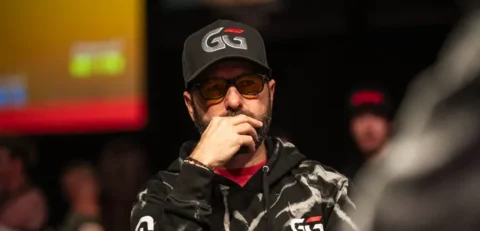There is no shortcut to getting better at poker. You have to be dedicated, consistent, and continually learning to win. However, getting it right means seeking unconventional ways to win, just as the game demands. So, why not spin around the block and learn from other games to polish your poker face?
In this article, we explore how to polish your poker strategy through games like blackjack, video poker, and slots to learn transferable skills such as decision-making, risk management, and strategic thinking.
Blackjack: Sharpening Decision-Making and Probability Assessment
In Blackjack, every player on the table aims to accomplish one goal — score higher than the dealer while maintaining a card total below 21. Of course, the main question then becomes, how do you know what to do besides relying on luck? Good game strategy boils down to probability, quick decision-making, and psychological strength.
First, becoming better at probability through card counting and recognizing the dealer’s patterns makes knowing which strategy to employ easier. While most casinos discourage card counting, they cannot actively prevent you from having a sharp memory and keeping track of high and low-value cards. Maintaining this strategy applies both in blackjack and poker and is guaranteed to improve your wins.
As you progress through the games, it becomes evident that most players crack under pressure. Keeping calm and holding on to your funds could save you from costly mistakes. Sometimes, keeping a “poker face” is the difference between winning and losing. Better emotional regulation during an intense game comes from mindfulness, healthy eating, and exercise.
As you play more, you’ll find yourself making quicker moves, making it easier to learn from your mistakes and do better in your next game. You’ll also learn to estimate odds better and know when to play certain cards, and when not to avoid risking current wins for future losses.
It all boils down to the strategy you’ve set out for the game, not what other players are doing. Fortunately, you can practice your skills through Slots Capital and watch it transfer into your poker games.
Video Poker: Practicing Poker Fundamentals in a Simpler Format
Video poker is generally a low-house-edge game, which reduces the pressure associated with poker. It’s the perfect place to kick off a casino journey because it maintains the simplicity of slots while incorporating some poker elements.
Unlike traditional poker, there are no betting rounds in video poker. You wager your bet at the beginning of the game, receive five cards, and then choose which to keep or discard. At the end of the game, your hand is revealed, and the casino pays out according to the pay table.
There is no bluffing here. Only you, the machine, and knowing which cards to keep to maximize wins. As you keep playing, you better understand hand rankings across different video poker variations, making it easier to refine your strategy to score the most wins per game.
Furthermore, while the casino presents specific odds to help you determine which odds to play, you’ll eventually learn that the odds are often calculated in the casino’s favor, and it’s up to you to determine which risk you can take.
Generally, you have to make fast decisions, which forces you to trust yourself and make a choice, then learn from your mistakes. Over time, most players realize that distributing their cash across multiple small bets instead of placing all their eggs in one basket helps them last longer in a game and increases their chances of winning.
Roulette: Understanding Risk and Managing Bankroll
While blowing on your dice before a game may bring you some semblance of good luck, narrowing your strategy and managing your bankroll are the best ways to enjoy a roulette game.
There are several popular strategies to try, but ultimately, you’ll land on your patterns. Like many players, you may find yourself consistently seeking out either red or black, which will help you understand your decisions at the table when you’re under pressure. The heuristics you adopt will likely translate into poker, too, and you can figure out how to work against them and when or where to adopt specific poker strategies, just as in roulette.
Starting with a table with a small minimum bet and a maximum bet makes it easier to keep your money by minimizing risk. As the game progresses, you can increase your bet in small portions and adjust your strategy to see what works for you. After winning, pocket your winnings and bet the same small amount. Even if you win $1, it’s ultimately better than leaving with nothing.
Next, account for probability. If there are equal odds of landing either a red or black, there is no reason to be loyal to either. Distributing your chances based on your odds of winning, both roulette and poker, increases the probability of winning and helps you work against your biases.
Strategic Slots: Improving Patience and Recognizing Patterns
Modern slot games are immersive and interactive, creating a sense of anticipation and building up your adrenaline. The stimulation from the games creates an excitement that will have you punching the wheel without much thought if you are not careful.
Playing slots helps you observe your emotional and psychological responses to overstimulation, which is extremely helpful when playing poker. Since you need to play multiple rounds for worthwhile wins, you’ll also master the patience of spinning the wheel multiple times.
Furthermore, slots are heavily randomized games, so the results are often based on luck. As such, you should always enter a game with managed expectations. Whether or not you can determine a game’s patterns might not matter much if you cannot recognize your own. Focus on identifying your strategies after winning or losing and learn how to adjust despite your biases. Eventually, you’ll learn how to be in control of any game, including poker.
Baccarat: Mastering Emotional Control and Discipline
Like many casino games, baccarat is a game of skill and luck. Since the shuffle of the cards is random, anxiety tends to build up with each game. Establishing realistic goals at the beginning of the game can help you fight against cognitive biases and remain disciplined with your bankroll. A losing streak is no reason to plunge in blindly; a winning streak isn’t a reason to be reckless with your wins.
In addition, baccarat is simpler than poker, which gives you more time to focus on your emotional states during the game. Observing your emotions makes it easier to be mindful in future games and prevents you from giving in when you lose. The pressure definitely increases on a poker table, especially when you face other players, so it’s better to practice how to bluff when it’s just you and a dealer on a mini table.
Enhancing Your Poker Strategy Through Diverse Gaming
A perfect poker face comes from years of mastering your emotions, the game, and knowing what’s at stake. If diving into poker isn’t getting you the desired results, consider taking a different route and exploring different casino games, which will enhance your transferable skills and mold you into a well-rounded casino player. Find a community of like-minded players where you can practice your poker skills and share tips.












